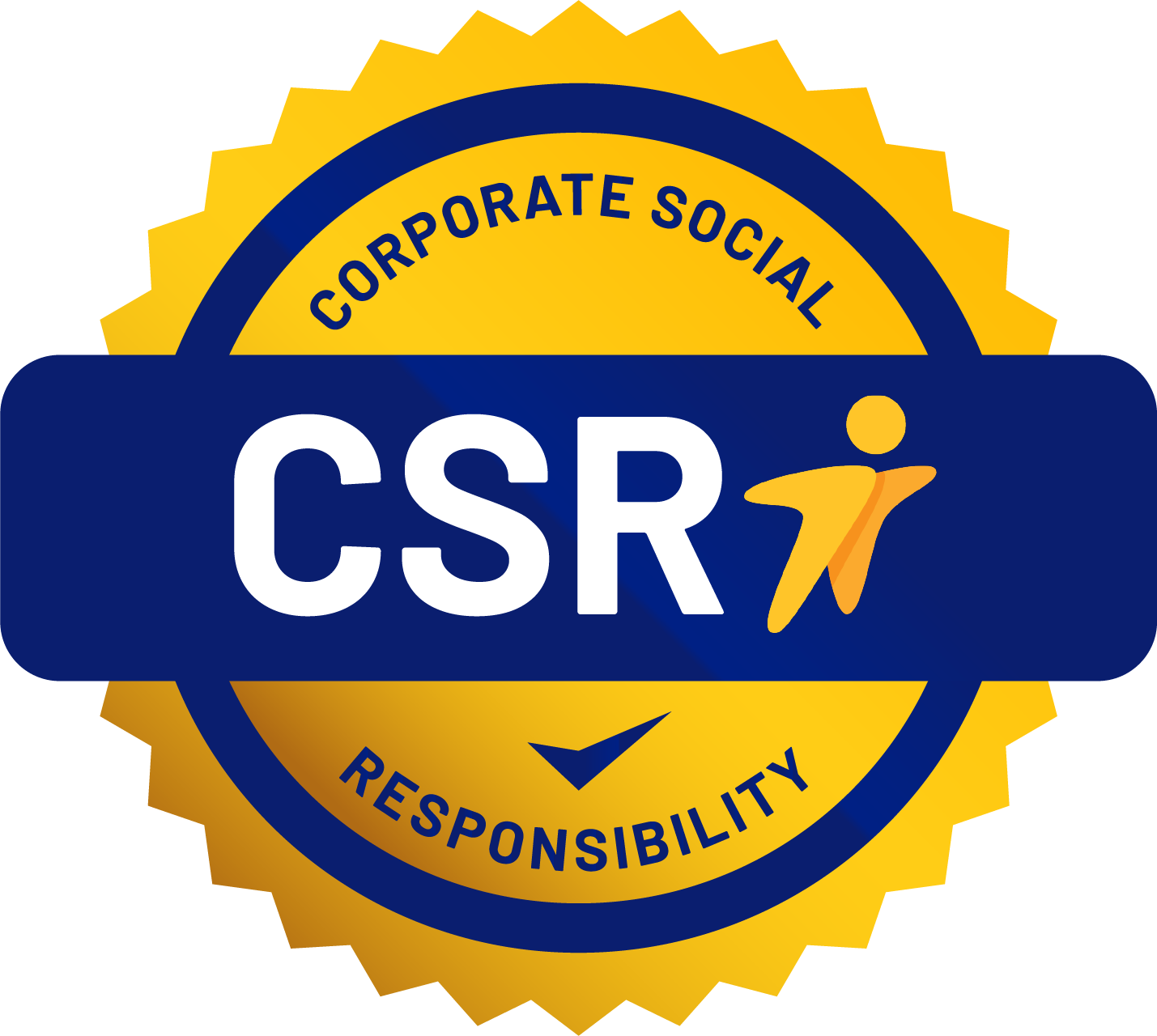Background Checks for the Gig Economy: Best Practices for Hiring Independent Contractors
Alexis Hardie • October 8, 2024
Nontraditional workers — from gig economy freelancers to on-demand contractors — are transforming the hiring landscape, urging employers to rethink HR practices to meet this shift.
One significant challenge is establishing when and how to conduct background checks on these temporary and often short-term roles, where traditional screening methods may not fully apply.
Balancing effective risk management with flexible hiring policies is key to adapting to this changing workforce.
Keep reading to learn why businesses should run background checks on independent contractors, the legalities, the risks of skipping them, and how third-party screening can keep you compliant.
A Quick Peek Into the Gig Economy in Canada
The Canadian gig economy is gaining traction as more people explore flexible, creative income options through multiple short-term or part-time jobs rather than relying on a single career.
The gig economy can significantly benefit businesses and workers.
Employers can quickly fill temporary roles or access specialized skills without long-term commitments, while workers can manage their schedules and boost their income through diverse gigs.
Below are some examples of independent contractors you might hire:
- Rideshare drivers (Uber, Lyft)
- Delivery drivers (DoorDash, Instacart)
- Couriers
- Freelance writers, designers, marketers, and editors
- Graphic designers and web developers
- Photographers and videographers
- Social media influencers and content creators
- Virtual assistants
- House cleaners
- Personal shoppers
- Fitness trainers and coaches
- Online educators and tutors
- Event staff (planners, security personnel, caterers)
- Tech and IT contractors (software developers, cybersecurity experts)
- (nurses, physical therapists)
- HVAC contractors (electricians, plumbers, service technicians)
- Creative professionals (actors, musicians, voice-over artists)
- Translators and interpreters
Why Run Background Checks?
Employers typically perform background screenings and drug testing to mitigate risks such as negligent hiring claims, workplace theft, substance abuse, reputational damage, and financial losses. These checks help ensure that employees are trustworthy, competent, and aligned with your company's values.
In addition to full-time employees, many employers hire independent contractors and vendors to address fluctuating labour needs. While these workers are not permanent employees, they can still present similar risks — yet many companies apply less stringent screening processes to them than they would for regular employees. This inconsistency often stems from various concerns:
- Co-employment fears: Employers may worry that conducting too thorough a screening process for contractors could blur the lines between employees and contractors, potentially leading to misclassification issues.
- Talent retention: Some employers hesitate to impose strict screening practices, fearing it may deter top-tier contractors or vendors who prefer a more flexible approach.
- Lack of awareness: Other organizations may underestimate the legal, financial, and reputational risks associated with insufficient vetting of independent contractors or vendors.
Is it Legal to Conduct Background Checks on Canadian Contractors?
Yes, it’s legal to run background checks on contractors in Canada as long as you have the contractor's consent and keep their information confidential.
Canadian privacy laws are strict, majorly influencing background checks, even extending beyond Canada’s borders. Global organizations hiring employees in Canada must comply with these regulations.
The Personal Information Protection and Electronic Documents Act (PIPEDA) governs data privacy laws for organizations involved in commercial activities, especially when transferring personal data across provinces or internationally.
PIPEDA requires you to only collect necessary information and protect that data with proper security measures.
What Types of Background Checks Can Businesses Run on Canadian Employees and Contractors?
Depending on the new hire's role, businesses can perform various background checks in Canada. Here are some of the most common checks, along with a few less common ones:
Common background checks:
Less common background checks:
- Credit reports
- Social media profiles (depending on the role)
- Driving records (depending on the role)
Here’s a closer look at each type of check:
- Criminal record: These checks go through the Royal Canadian Mounted Police (RCMP) for national records and local courts for provincial or territorial checks.
- Employment history: You can contact a new hire's previous employers to verify their employment dates, salary, and reasons for leaving.
- Reference check: This check involves contacting your new hire’s resources.
- Education history: Employers can verify a new hire’s education by contacting the institutions they attended to confirm graduation dates, degrees obtained, and GPA.
- Credit reports: While not commonly used, credit checks are legal for verifying a new hire's identity and background.
- Social media profiles: Employers can review public social media profiles. However, applicants are not required to give you access to private profiles.
- Driving records: For jobs requiring driving, employers can check driving records to confirm the applicant's license is valid and free of violations.

Which Background Checks Are Illegal in Canada?
Certain questions and background checks are prohibited in Canada, including:
- Ethnicity, sex, or age questions: These are protected characteristics, so you can’t ask about them during pre-employment screenings.
- Discriminating based on criminal records: You can check a candidate’s criminal record, but you can’t discriminate based on minor offences (like trespassing or unlawful assembly).
- Medical records: Unless a new hire requests accommodations for a disability, requesting medical history during the hiring process is illegal. Denying candidates a job based on their medical background is also unlawful.
The Importance of Background Checks for Independent Contractors
Running background checks when hiring independent contractors can help avoid potential problems and protect your business against risk. These checks ensure applicants have the right skills and a clean record to do the job safely and effectively.
Here are some key things to check:
- Criminal history: Check to make sure the contractor has no convictions that could harm your business or customers or affect their work.
- References and work history: Contact their past employers or references to learn about their work performance and attitude.
- Licensing and qualifications: Verify that they have the proper licenses or certifications required for the job.
The Risks of Skipping Background Checks for Companies
Freelancers and contractors often have access to the same company resources, sensitive data, and customer information as your full-time employees. Not screening these temporary workers can put your business at risk.
In Canada, there have been cases involving vicarious liability — where an employer can be held responsible for the actions of an independent contractor in negligent situations. This legal approach applies to employees and, in some cases, independent contractors, especially when an organization has enabled or created a situation that fosters the risk of harm.
Even one bad hire can damage your company’s reputation or threaten the safety of your staff. Here’s an example of hiring gone wrong:
Sagaz Industries hired a consulting firm, American Independent Marketing Inc. (AIM), to help secure a contract with Canadian Tire. AIM’s owner used bribery to influence Canadian Tire’s decision, ultimately leading Sagaz to win the contract.
Initially, the court found AIM to be an independent contractor, meaning Sagaz wouldn’t be liable. However, upon appeal, the Ontario Court of Appeal applied the “organization test,” which determined that AIM’s role was highly integrated into Sagaz’s operations. Sagaz was liable for AIM’s misconduct, showcasing how vicarious liability can extend to independent contractors when they play a significant role in an organization’s operations.
Challenges of Performing Background Checks on Gig Employees
Performing background checks on gig workers can be challenging, as the nature of gig work often differs significantly from traditional full-time roles. Here are some key issues:
Legal Boundaries and Compliance
Since gig workers are independent contractors, they’re typically subject to different legal guidelines than full-time employees. Employers must navigate privacy laws like PIPEDA, ensuring that all background checks are compliant while safeguarding workers' personal information. Additionally, obtaining informed consent is mandatory before conducting any background checks.
Turnover and Screening Frequency
With gig workers frequently moving in and out of roles, maintaining regular background screenings can be costly and logistically complex. While you must thoroughly vet each worker, the transient nature of these roles means that many may not stay long enough for employers to perform repeated checks.
Variable Access and Risk Levels
Gig roles vary widely, from those needing minimal access to sensitive roles that demand thorough vetting. Screening should match the role’s risk level, ranging from basic ID checks to full criminal and financial background checks.
Shorter Engagements, Less Data
Independent contractors often have a fragmented employment history with no single employer, making it difficult for employers to verify qualifications and past performance. Background checks typically rely on consistent work history, but gig employees may not provide enough verifiable context.
Fairness and Avoiding Discrimination
You must apply consistent background check standards across all workers, whether full-time or gig-based, without discriminating based on race, gender, or other protected characteristics. Balancing thorough screening and avoiding bias can be especially tricky in a diverse, fast-moving gig economy.
How Third-Party Screening Services Can Help
Using a third-party service for background checks can make the process faster and more reliable, especially for gig workers. These services help businesses stay current with Canadian privacy laws, ensuring they handle workers’ information safely and securely.
Partnering with a trusted provider also reduces the workload on your team while ensuring consistent and accurate screenings.
Mitigate Risk in the Gig Economy With Hire Performance
While conducting background checks on gig workers can be challenging, employers can manage risks by adjusting their processes to accommodate the flexibility and transient nature of gig roles.
Leveraging third-party services, maintaining compliance with Canadian privacy laws, and tailoring checks based on the role's risk level are all critical strategies for navigating this evolving landscape.
Ensure the safety and reliability of your independent contractors. Contact Hire Performance for tailored background check solutions today!

Industry Leading Technology for Background Checks & Screening
eScreener uses Kount Identity Verification™ technology to verify identity with confidence. This technology cross checks applicant information against Equifax and 3rd party data sources to validate an identity and to determine whether that identity has been reported as misused or associated with potential fraudulent activity. This is done in real time by accessing millions of records, providing instant results in our eScreener.
WHY CHOOSE HIRE PERFORMANCE?
Pre-Employment Screening Benefits
Our industry leading expertise and cutting edge technology help organizations detect potential risks such as resume fraud, criminal convictions, and past terminations.












